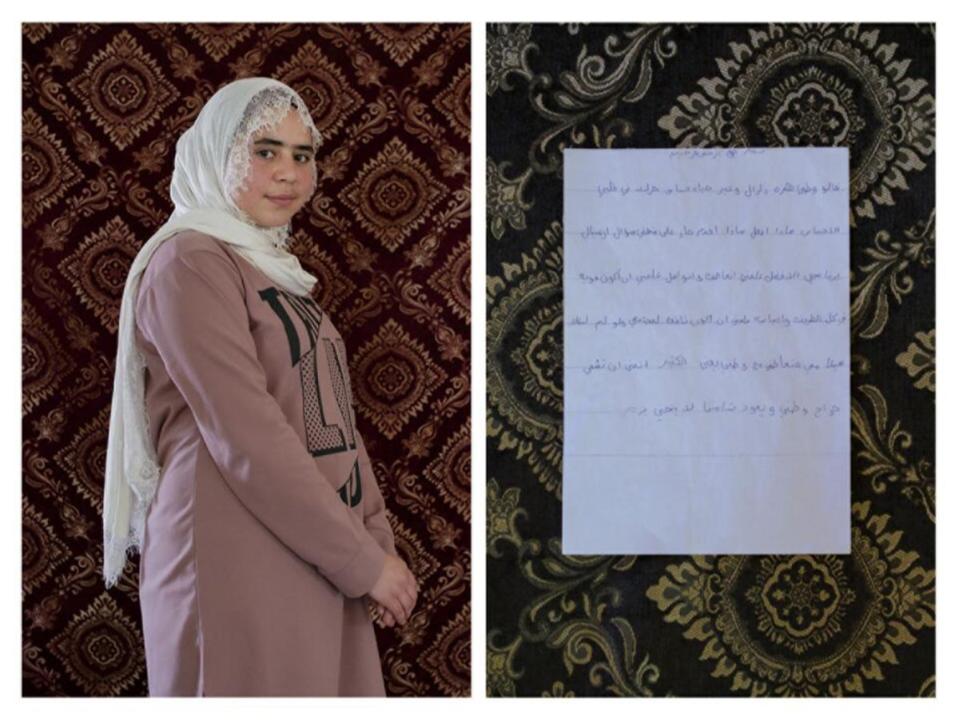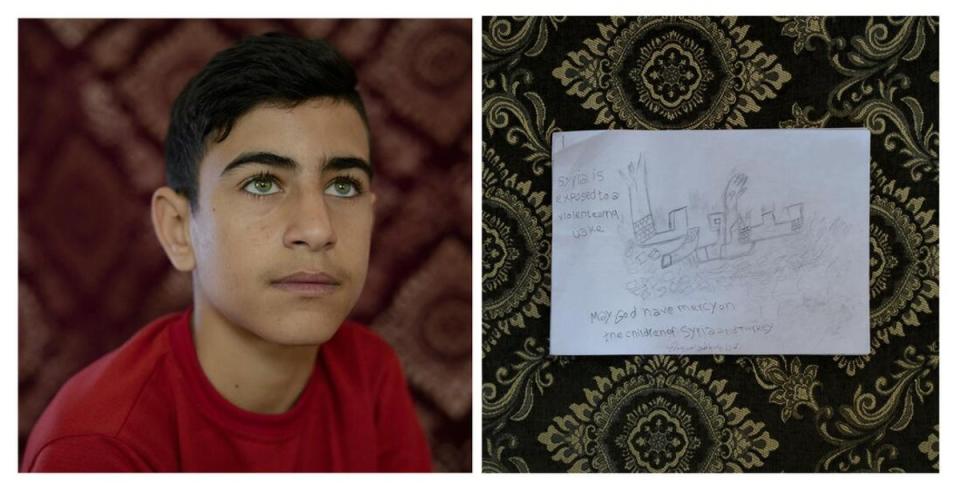12 years of war: Syrian teens pen powerful artworks to help process earthquake and ongoing conflict

As earthquakes struck Turkey and Syria last month, killing more than 50,000 people across both countries, Syrian teens living in Za’atari refugee camp watched on in horror as the footage came through on social media.
For many, witnessing young children forced into temporary shelters and struggling to access food reopened old wounds from fleeing the country’s deadly conflict as babies over a decade ago. Many more faced agonising waits to discover if friends and family still living in Syria had made it out alive.
To help process the news, they began to draw what they saw and pen poems of support to the children injured or affected, expressing solidarity, hope and advice on how to cope with hardship.
Their creativity was captured during sessions run by Save the Children and The Arsenal Foundation’s “Coaching for Life” programme, a football programme that attempts to build sustainable resilience in children displaced by the Syrian war. It focuses on supporting children’s emotional well being and mental health. The resilience modules embedded in the sessions enable children to discuss and confront difficult emotions such as sadness and anger but also encourages positive emotions such as empathy and compassion.
Junior Coach, Yamen*, 18, said of his drawing, “It reflects what happened to me and other Syrians who had to flee our country in 2013.”

“When I heard about the earthquake it took me back to the feelings I went through being displaced and not having a home. The first thing that came into my mind was the people will be experiencing the same situation that we lived through.”
Suha*, 13 chose to write a poem: “It’s an earthquake which shakes our hearts,”
All of the rubble buried the children and overnight all their dreams are lost. It’s death everywhere. But they will get their stolen smile back on their lips”.

Suha recalls of the day the earthquakes struck, “My aunt called and told us. She didn’t know what happened to her children. My cousins were trapped under the rubble for 24 hours.”
“Two of them got out but the third one, her son, both of his hands and legs were broken. My mum and aunt were just crying over the phone because my mum is not able to reach her in that moment.”
Farah*, 13, says, “For everyone who writes a poem, feelings are the inspiration. I was inspired to write by the pain I felt, I wanted to express my pain to show solidarity with children who are suffering.”

“When I heard about the earthquake, I was worried about my uncle who lives in Idlib. He’s disabled as he lost his leg during the war. I was also worried about my cousins, his two daughters.”
Noor*, 13, also wrote a poem: “What can I do, what can I deliver? It’s been a question on my lips,”
“I hope all the wounds my country suffers will be healed and it will be strong and stand up again.”

Noor recounts, “I found out about the earthquake on social media. It made me feel pain. I felt sadness for all the children who were stuck under the rubble, for all the children who couldn’t make it. Who died there.”
Launched in Za’atari, one of the world’s most populous refugee camps which hosts around 80,000 people, more than half of whom are children – Coaching for Life focusses on supporting children and their families who fled their homes since the outbreak of the Syrian war in 2011.

Using a blueprint developed over 38 years of Arsenal in the Community’s work in north London, combined with Save the Children’s experience in conflict and humanitarian crises, the project uses the power of football to build a sense of belonging and improve the physical, mental, and emotional wellbeing of children.
For more information visit www.savethechildren.org.uk
*Names changed

